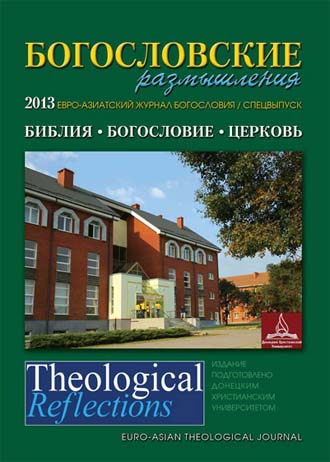Three Periods of Awakening in Eastern Slavic Lands
Keywords:
Евангельское пробуждение, Русско-украинский протестантизмAbstract
This article compares and contrasts three periods of evangelical awakening in the former Soviet Union with the goal of showing the most important factors that contributed to awakening. The three periods in question are the evangelical awakenings that occurred under Lord Radstock in the late 19th century, during the first decade under communism in the early 20th century, and during the first decade after the fall of communism in the 1990's. The author attempts to balance spiritual factors, such as those examined by renowned specialist in awakenings J. Edwin Orr, with historical and cultural factors, such as those analyzed by sociologist James Davison Hunter and experts on change Andy Crouch and Malcolm Gladwell. While certain common factors emerged, such as active mission work, influential leaders, increased religious freedom and availability of Bibles, there were important differences as well. It is clear that further study is needed regarding the period of the 1990's, during which several key factors from the previous periods were lacking.
Downloads
How to Cite
Issue
Section
License
Copyright (c) 2020 John WHIT

This work is licensed under a Creative Commons Attribution-NonCommercial 4.0 International License.
All articles published in the Journal are distributed under a Creative Commons Attribution-NonCommercial 4.0 International License
By submitting an article for publication in Theological Reflections: Eastern European Journal of Theology the author grants the editors the right to publish the article and distribute it in electronic and print form.
The author reserves all copyrights and the right to use the materials of the article in whole or in part for educational purposes, to write his own dissertations, to prepare abstracts, conference reports, oral presentations, etc., as well as post electronic copies of articles (including the final electronic version downloaded from the journal’s official website) on non-commercial web-resources without the consent of the editorial board and founders.



